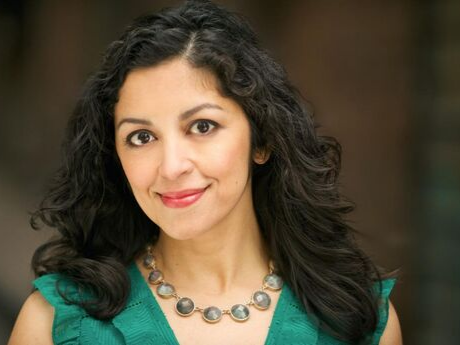New American Poets
New American Poets: Aimee Nezhukumatathil

Two Egg, Florida
I want to go back to this town so rich in poultry,
poor in everything else. The women send their kids
to the general store to trade two eggs for a kerchief
full of sugar. Everyone in town gets by with two eggs
worth of sugar—a dentist's dream. They add sugar
to everything: bread, milk, even water, chilled,
for a special summertime treat. In the deep-dark world
of water, there are fish who feast on whale dust.
I say dust, because all the fat and wide bones are no more.
And imagine how deep that is — deep enough where
the only sign left of the mighty animal is a vague powder
falling onto the back of a hermit eel. Beware the jalpari,
the water spirit who drowns young men whenever she wants
company in her watery home. She aches to return to land, where
rockshell and weeds dry out, eventually. Only gifts of spider lily
and sedge left at the edge of the sea placate her. How lonely
would you feel in a place like that — so much pressure,
so much darkness. I'm pulled to the sea floor. My loneliness
is eaten. How poor is the hen that gave one egg at a time?
How do you tell your son to string her neck with twine?
All rights reserved. Reprinted with the permission of the author.
Do you think that poetry can have an effect on everyday speech? How?
A fire-eater named Mannix opens his mouth wide as he can and inserts a flaming torch at an angle of seventy-five degrees—the flame rushing out of his open mouth instead of going down into his lungs. The trick is to keep a steady current of air coming out of his mouth that prevents the torch flame from hitting his lips and yet doesn't make the fire jump around and singe his cheeks.
Since so much of my poetry is research-based, I do find myself latching on to words that burble and singe my checks. I often find that I can't help it—I confess I fall in love with words, the sound and color and flavor of words every day, or at least the days I get to spend reading and researching. How can you come across words like okapi, kakamora, dousing, and wentletrap and not fall madly, hopelessly in love? How can you not ache to write them, let your speech be infused with them like herbs in a delicate oil?
Of course, like the fire-eaters, too much flame and burst of light can be a bad thing, especially if your everyday speech becomes a cacophony of phony, like you sound like you have been reading your father's old encyclopedias again. But I find, thankfully, that I can directly trace back to my reading of say—pirate dictionaries, or south Pacific shell identification guides is just the thing to spice up everyday conversation without delving into a big mess of explanation. I am often not even aware of how my researching/writing crosses over into everyday conversations unless my husband or my students give me a quizzical look or a simple "huh?" when I pepper or test-drive my speech with a newly learned (or written) phrase or even metaphor that I had originally meant for a poem. But more often than not, I am grateful, eager for the burn.


